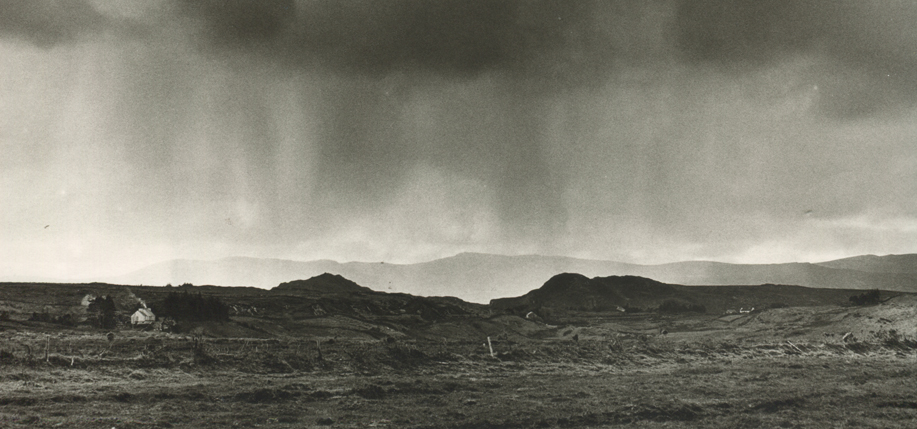Scan barcode
buddhafish's review
4.0
159th book of 2020.
The medieval Irish work Buile Suibhne was left untranslated from 1913 till Seamus Heaney published this, Sweeney Astray, in 1983. Heaney breathed new life into it for the contemporary audience. The hero of the poem is Mad Sweeney, who is cursed at the Battle of Moira; he is turned into a bird and flees. The Mad Sweeney from Gaiman's American Gods is based (quite loosely) off Buile Suibhne, which is perhaps the only other reference to the poem I can think of. The blurb of my old Faber & Faber edition states, "The poetry spoken by the mad king, exiled to the trees and the slopes, is among the richest and most immediately appealing in the whole canon of Gaelic literature."
The poem is mostly plotless. The poem's catalyst is Sweeney's curse and metamorphosis, but from there, Sweeney journeys across Ireland (and beyond) and the poem becomes an ode to the landscape as much as it does his character and arc. Ireland is at the heart of the poem. The American photographer Rachel Giese (now Rachel Brown) accompanies Heaney's poem with incredible, dramatic photographs of Northern Ireland in her subsequent publication called Sweeney in Flight. Her photographs cover the boundaries of Mad Sweeney's old kingdom, Dal-Arie.

The poem is partly in verse and also prose, oscillating between the forms as the story progresses. There are 87 "stanzas". Sweeney spends months, years, flying from place to place and meeting hosts of characters, most notably, another madman, Alan.
Sweeney is cursed because of his actions, breaking the laws of the battle at Moira, and though his fate is deserved, we come to pity him in his wanderings.
Though I found Heaney's writing less dramatic and piercing than in his debut collection, Death of a Naturalist, I still think he was the perfect writer to take on the tale. It is reminiscent of Hughes' Crow, with the same power of nature throbbing in the undercurrents of every verse. It is a long, bumbling poem like a river, following Mad Sweeney as he goes. With Giese's photography, the poem is even more brilliant, no doubt. Soon, I will spend the money (it is quite expensive) to get a copy of her Sweeney in Flight.

The medieval Irish work Buile Suibhne was left untranslated from 1913 till Seamus Heaney published this, Sweeney Astray, in 1983. Heaney breathed new life into it for the contemporary audience. The hero of the poem is Mad Sweeney, who is cursed at the Battle of Moira; he is turned into a bird and flees. The Mad Sweeney from Gaiman's American Gods is based (quite loosely) off Buile Suibhne, which is perhaps the only other reference to the poem I can think of. The blurb of my old Faber & Faber edition states, "The poetry spoken by the mad king, exiled to the trees and the slopes, is among the richest and most immediately appealing in the whole canon of Gaelic literature."
The poem is mostly plotless. The poem's catalyst is Sweeney's curse and metamorphosis, but from there, Sweeney journeys across Ireland (and beyond) and the poem becomes an ode to the landscape as much as it does his character and arc. Ireland is at the heart of the poem. The American photographer Rachel Giese (now Rachel Brown) accompanies Heaney's poem with incredible, dramatic photographs of Northern Ireland in her subsequent publication called Sweeney in Flight. Her photographs cover the boundaries of Mad Sweeney's old kingdom, Dal-Arie.

The poem is partly in verse and also prose, oscillating between the forms as the story progresses. There are 87 "stanzas". Sweeney spends months, years, flying from place to place and meeting hosts of characters, most notably, another madman, Alan.
Then Sweeney left Ailsa Craig and flew over the stormy maw of the sea to the land of the Britons. He passed their royal stronghold on his right and discovered a great wood where he could hear wailing and lamentation. Someimtes it was a great moan of anguish, sometimes an exhausted sigh. The moaner turned out to be another madman astray in the wood. Sweeney approached him.
—Who are you, friend? Sweeney asked.
—A madman, said he.
—In that case, you are a friend indeed. I am a madman myself, said Sweeney. Why don't you join up with me?
Sweeney is cursed because of his actions, breaking the laws of the battle at Moira, and though his fate is deserved, we come to pity him in his wanderings.
Son of God, have mercy on us!
Never to hear a human voice!
To sleep naked every night
up there in the highest thickets,
to have lost my proper shape and looks,
a mad scuttler on mountain peaks,
a derelict doomed to loneliness:
Son of God, have mercy on us!
Though I found Heaney's writing less dramatic and piercing than in his debut collection, Death of a Naturalist, I still think he was the perfect writer to take on the tale. It is reminiscent of Hughes' Crow, with the same power of nature throbbing in the undercurrents of every verse. It is a long, bumbling poem like a river, following Mad Sweeney as he goes. With Giese's photography, the poem is even more brilliant, no doubt. Soon, I will spend the money (it is quite expensive) to get a copy of her Sweeney in Flight.

More...